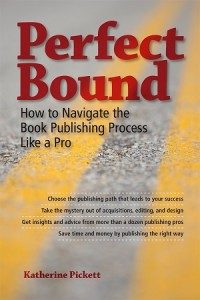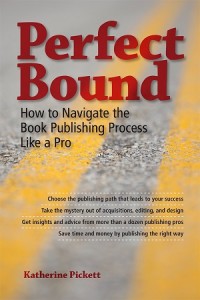What developmental editors do for authors
Developmental editors are concerned with the structure and content of your book. If your manuscript lacks focus, your DE will help you find the right direction to take (the “right” direction generally being the most marketable). This is where problems of inconsistent tone, an unclear audience, or an unidentified marketing niche often surface.
Developmental editors perform many of the same editing tasks as an acquisitions editor, but unlike AEs, whose time is split between editing and the business side of publishing, DEs tend to be able to give you more personal attention. If you have hired a DE on a freelance basis, this is undoubtedly true. Either way, you will find that good DEs are friendly, organized, valuable to your endeavor.
Although these editors are mostly a friendly bunch, when working with a DE, be prepared to be challenged. Your DE, generally speaking, won’t dictate to you what the book has to be, but you may be asked to justify your position when there is disagreement. At all times, however, it should be a collaboration.
In his essay “Developmental Editing” Paul D. McCarthy writes:
“Successful collaboration allows the author to feel sustained and liberated by knowing that she doesn’t have to bear the burden of creation, development, and refinement alone.”
While it can be a relief to be able to lean on another’s expertise, at the time of editing, this so-called liberation by your DE may feel more like an attack. It helps to remember that you and your editor have the same goal: making the best book possible. When you consider your DE a part of your publishing team, you will be better able to accept his or her criticisms.
 When you work with a developmental editor, flexibility and good communication are a must. Manuscript development can be uncomfortable. The effort you have put into your writing, the time you took to craft the manuscript the best you could—it is difficult to set those aside and let someone else, an outsider, take apart and piece back together your work.
When you work with a developmental editor, flexibility and good communication are a must. Manuscript development can be uncomfortable. The effort you have put into your writing, the time you took to craft the manuscript the best you could—it is difficult to set those aside and let someone else, an outsider, take apart and piece back together your work.
To help smooth the process, discuss your vision of the book with your DE and work together until you can agree on a plan of action. Be open-minded and seriously consider the feedback that you are getting. It is essential that you and your DE have common goals and vision for the book for development to succeed.
“If the author does not embrace the plan with enthusiasm,” explains Scott Norton in his book Developmental Editing, “there’s no sense in attempting development.”
Should you have real reservations about the direction the DE is leading you and you feel your vision for the project is in danger, talk to your AE, if applicable. If this is someone you have hired, you may wish to find a new DE.
Once you and the DE agree on the direction your book should take, you can move to the next level of detail. The DE will help you determine the best order and organization for the chapters, highlight places where the text may have digressed too far from the topic, and point out areas where more explanation is needed.
If you are writing nonfiction, the chapter titles, headings, and subheads in the book may need to be rejuvenated, reworked, or eliminated. Artwork, sidebars, and any other special elements may also need to be created or placed throughout the manuscript. With fiction, common errors that DEs deal with include points of plot that don’t lead anywhere, inconsistent characterization, or missed opportunities to bring out your main themes.
Throughout the process the DE will help ensure that your intended audience is clear and that you have maintained an even tone in your writing. In manuscript development you are piecing together the big picture rather than focusing on grammar, word choice, and punctuation. Those smaller types of corrections will be made later in the process.
What a Developmental Editor Expects from an Author
Most DEs will expect a certain level of trust and respect from you. They have an advantage that allows them to improve your manuscript in a way that you can’t on your own, and much of this comes from not being emotionally tied to the writing, as you are.
They will put in many hours of work on your project, but when they see your manuscript for the first time, they can spot the rough areas much more easily than you can. And because they have been doing this kind of work for a long time, they also will be able to provide some relatively easy solutions to those problems.
In the case of your publishing house requiring you to work with a DE when you didn’t think one was necessary, you will also have to put your trust in the acquisitions editor who set you on this path.
In addition to trust, timeliness is another trait DEs appreciate. Your DE will work hard to meet the agreed-on deadline for sending you the edited manuscript, and you should work similarly hard to return the reviewed manuscript by the due date you have agreed to. Meeting this deadline is important because your DE has other authors to accommodate as well. If you miss your deadline, your DE may need to put your book at the back of the pile when you do return the manuscript.
For some authors, scheduling is flexible, but if you are trying to meet a certain publication date and you miss your deadlines, you cannot expect your DE to make up the time. So be realistic about your ability to finish the manuscript review, and communicate with your editor if you need more time.
When the DE and the author are able to agree on a vision for a new project, development can be a thrilling experience. For me as a DE, I love seeing a manuscript transform from one with gaps and excesses into something whole and compelling.
Helping an author to achieve the vision he or she had for the book is extremely rewarding. When there is a struggle at every turn, however, the quality of the end product is in doubt and the project loses its luster. But with a talented and engaged author, my suggestions are assessed, adapted, and implemented in the author’s own voice and style, and the final manuscript is a point of pride for both of us.
Katherine Pickett
Katherine Pickett is the owner of POP Editorial Services, LLC, and the author of the award-winning book Perfect Bound: How to Navigate the Book Publishing Process Like a Pro. She earned her bachelor’s degree in English from Loyola University Chicago and has been involved in the publishing industry for more than 15 years.
